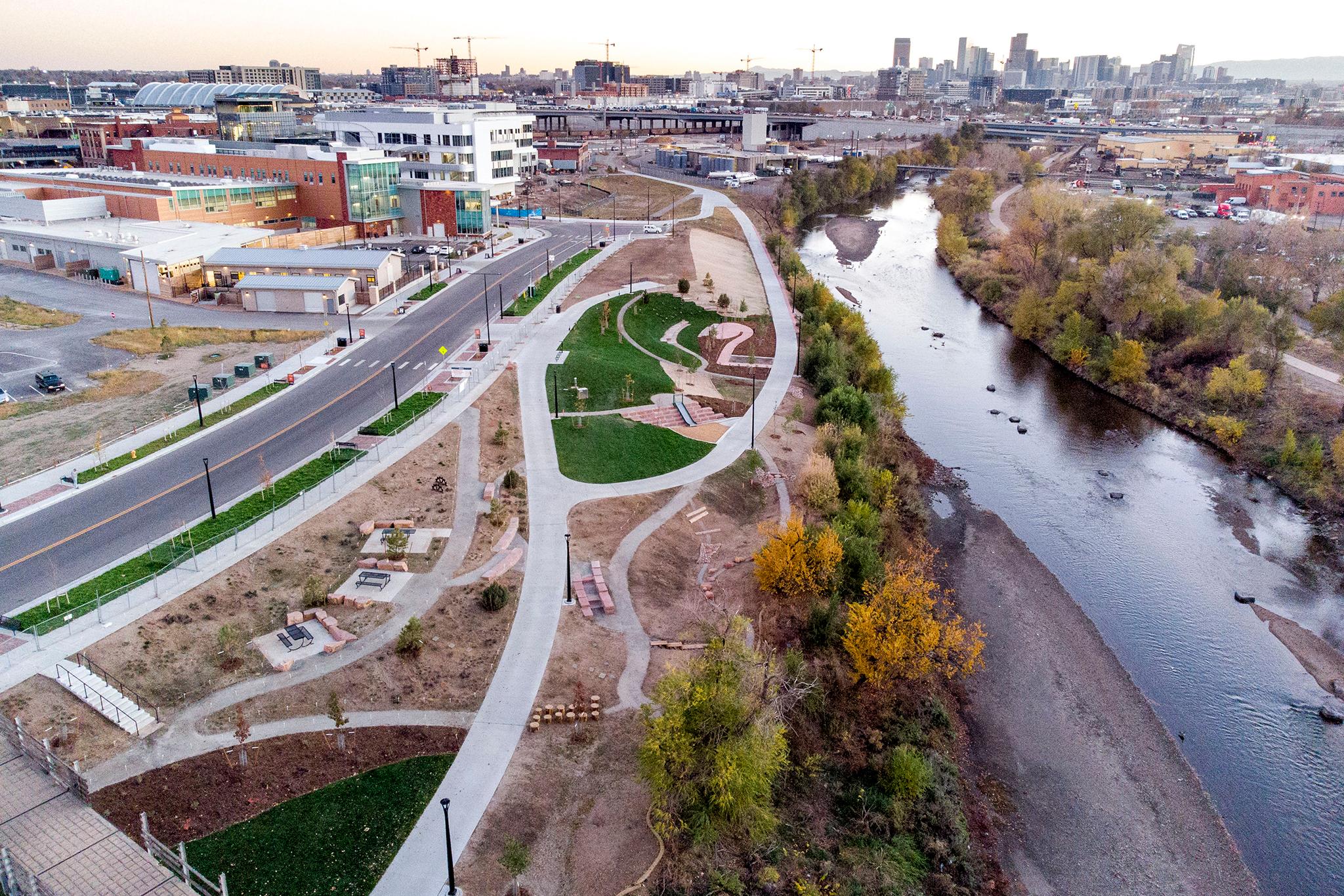North Denver will soon have some new green land, but don't go calling it a park.
"It's not officially a park but rather six acres of open space," Jenna Garcia, spokesperson for the National Western Center Authority told us. "[It] therefore does not have an official park name. We affectionally refer to it as 'The Riverfront.'"
Marcy Loughran, spokesperson for the Mayor's Office of the National Western Center, said the open space will be ready for visitors in the spring. It's replacing what once was a tangle of livestock pens and infrastructure that completely blocked access to the South Platte River.
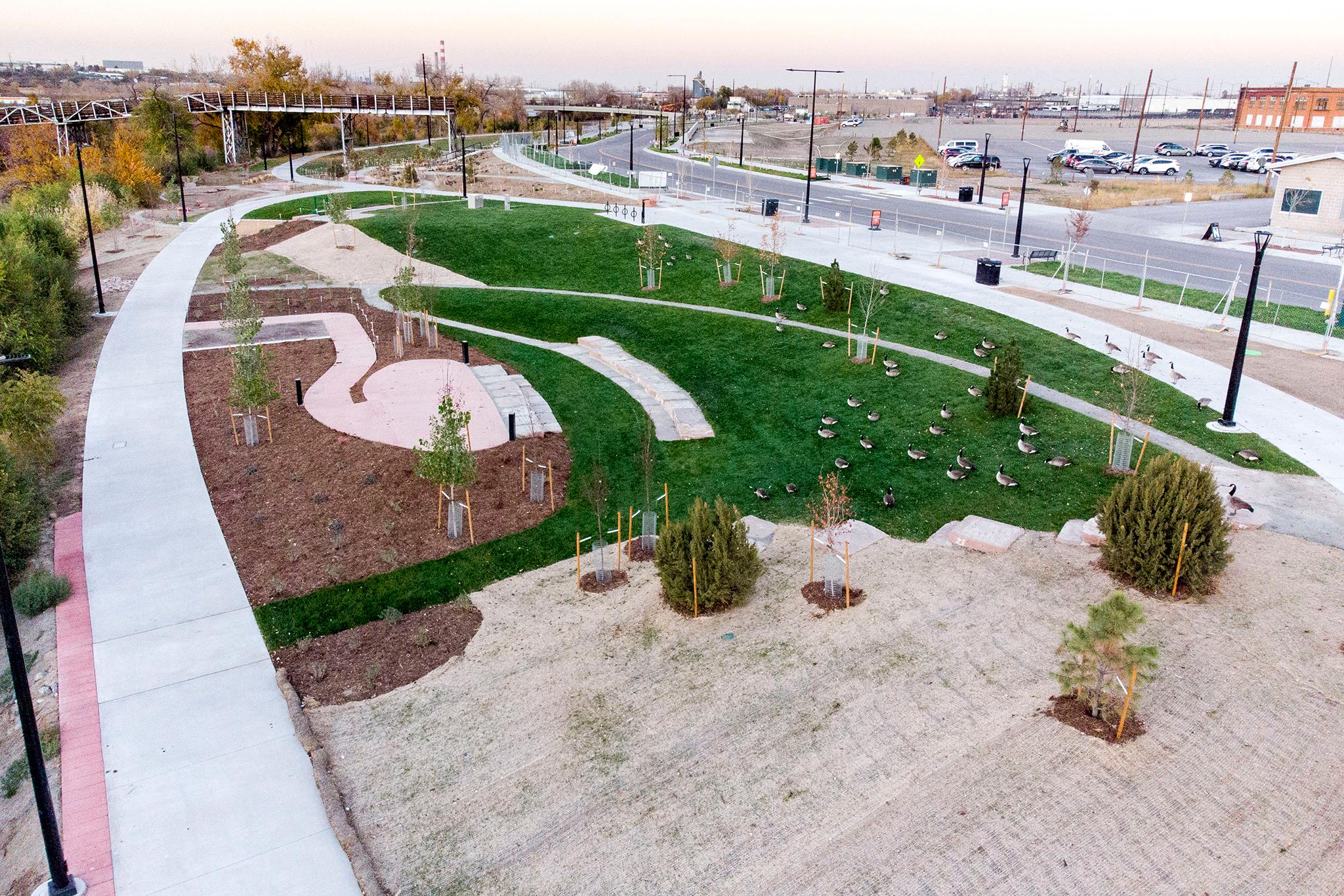
"We moved 14,000 linear feet (nearly three miles) of freight railroad tracks away from the east bank of the South Platte River. The Delgany wastewater interceptor, two parallel seven-foot-tall sewer pipes, was also relocated and placed underground. The steep east bank has been graded and widened," Loughran told us. "It will also help prevent future flooding and help filter out pollutants that can be harmful to public health and the river habitat."
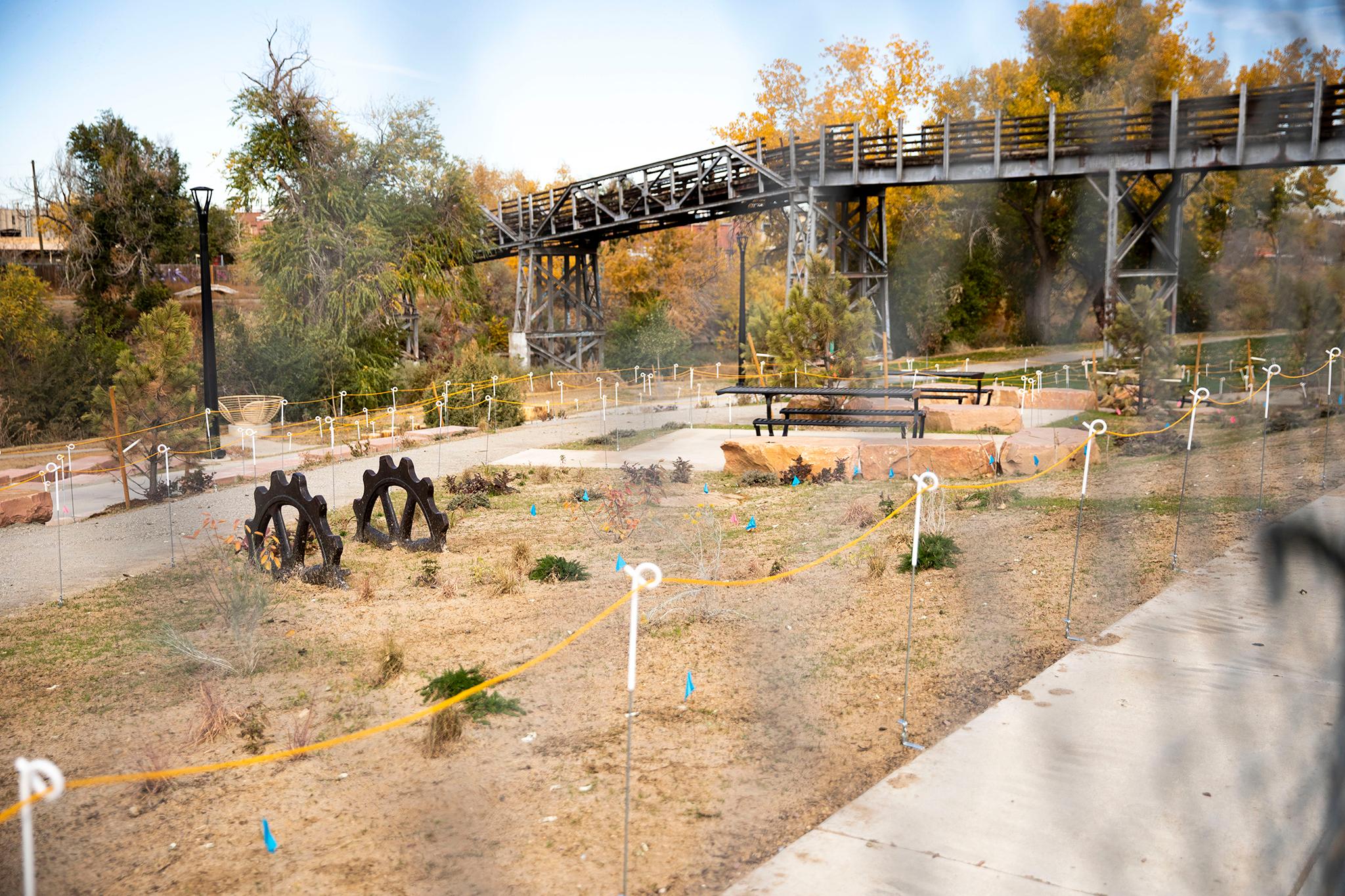
Those buried sewer lines are now doing double duty, as it were - the campus will draw almost 90% of its heating and cooling from thermal energy gleaned from the pipes.
Visible now at The Riverfront is a little amphitheater, some picnic tables and a slide. Garcia said new bridges, stretching west across the Platte, will let people walk or bike in from the South Platte Trail and Globeville. The "park" is meant to be "a new 'front door'" to the campus, which she said will dovetail with changes to Washington Street. For now, it looks like there are still a lot of industrial lots blocking the way.
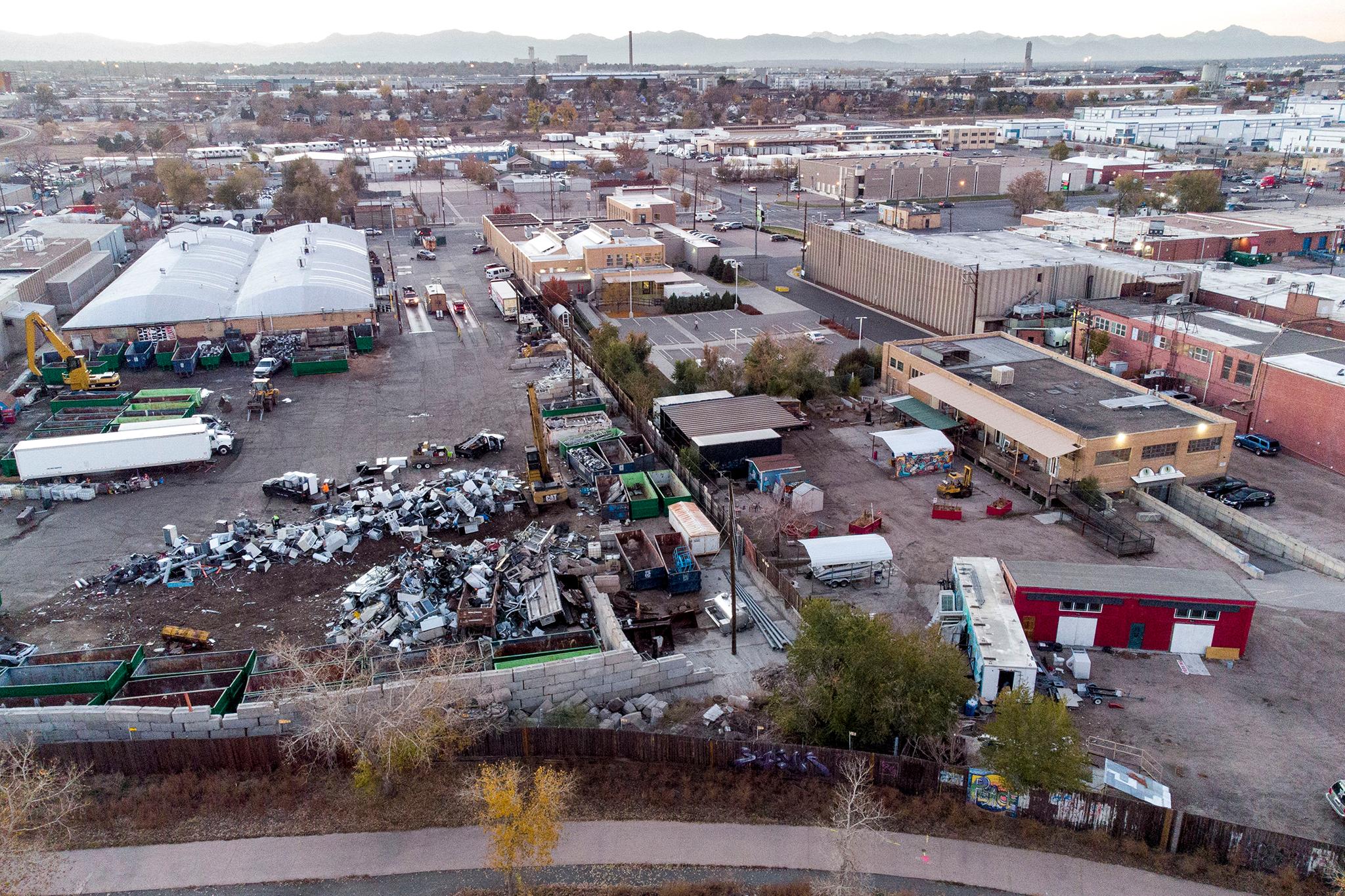
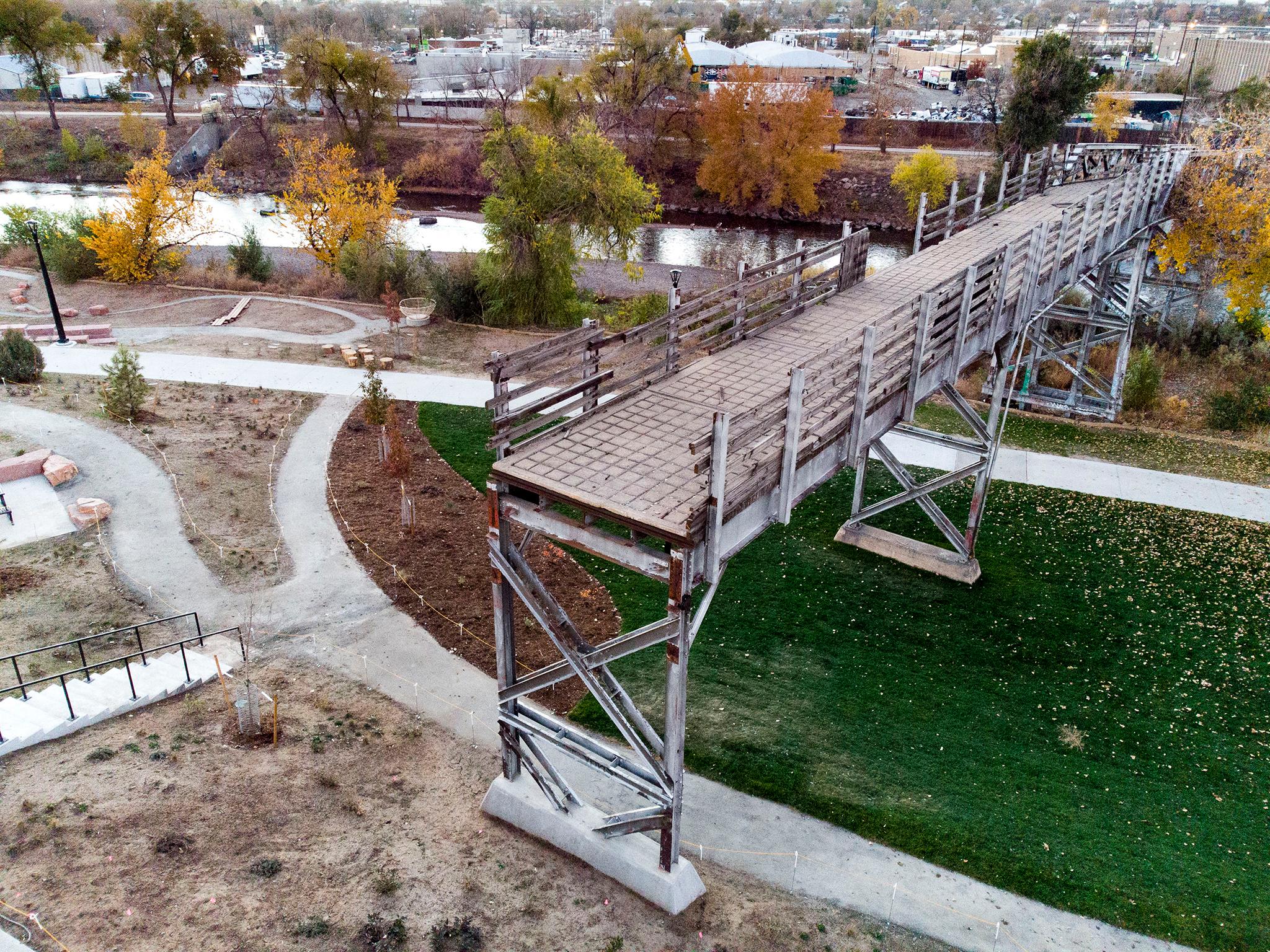
And though people will be able to get close to the South Platte's eastern banks for the first time in a very long time, it doesn't mean there will be much swimming there.
Tammy Vigil, spokesperson for the city's Department of Public Health and Environment, told us (1) "city ordinances prohibit swimming in city streams or lakes" and (2) E. coli levels in the river, especially in portions close to the National Western Center that are downstream from the city's center, make it inadvisable to take a dip.
While the river isn't in great shape for humans, some recent wildlife studies in the area have suggested the animals are doing OK for now.

